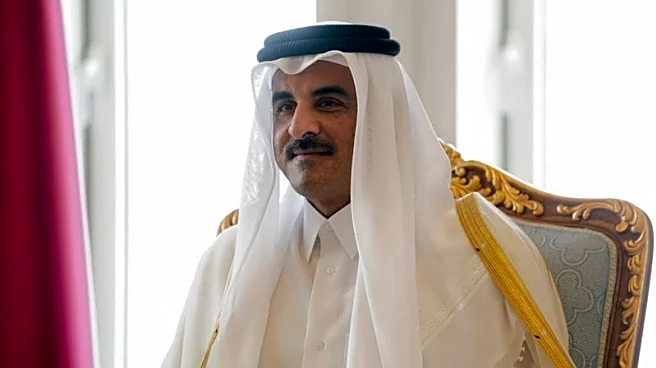What is the story about?
What's Happening?
Mitch Marner, a prominent NHL player, is preparing for his first return to Toronto as a member of the Vegas Golden Knights. After spending nine years with the Toronto Maple Leafs, Marner was involved in a sign-and-trade deal that sent him to Vegas, with Nicolas Roy moving to Toronto. Marner signed an eight-year, $96 million contract with the Golden Knights. His departure from Toronto has been a significant topic in the hockey community, especially given the lack of playoff success during his tenure with the Maple Leafs. Marner expressed mixed emotions about his return, acknowledging the strangeness of being on the visitor's side but also looking forward to the support from his new team and fans.
Why It's Important?
Marner's move to the Vegas Golden Knights marks a significant shift in the NHL landscape, affecting both teams' dynamics. For Toronto, losing a key player like Marner could impact their performance and strategy moving forward. Conversely, the Golden Knights gain a skilled winger, potentially enhancing their competitiveness in the league. Marner's return to Toronto is not just a personal milestone but also a moment of reflection for Maple Leafs fans, who may have mixed feelings about his departure and the team's future prospects. This event underscores the ongoing changes and strategies within professional hockey teams as they adapt to player movements.
What's Next?
Mitch Marner's return to Toronto is scheduled for January 23rd, a date that is anticipated by fans and players alike. This event will likely draw significant attention, with potential reactions from both Toronto fans and the broader NHL community. The game could serve as a benchmark for evaluating Marner's impact on the Golden Knights and how Toronto adapts to his absence. Additionally, the outcome of this match may influence future trades and team strategies as the season progresses.
Beyond the Headlines
Marner's transition from Toronto to Vegas highlights broader themes in professional sports, such as loyalty, career evolution, and the business aspects of team management. His move reflects the complex decisions athletes face regarding their careers and personal growth. It also raises questions about how teams balance player retention with strategic changes to achieve success. This situation may prompt discussions on the emotional and cultural aspects of sports, particularly how players are remembered and celebrated by their former teams and fans.















